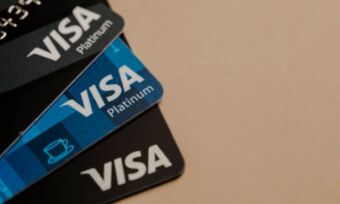Can I use my credit card to pay bills?
Credit cards are widely accepted across Australia, and many service providers offer the option of paying bills by credit card. Whether it’s a smaller recurring bill like a gym membership or streaming service, or a larger annual one like a home insurance premium or car registration, many bills can be paid by credit card. You can also pay an invoice by credit card. It’s always worth checking to see if a bill can be paid by credit card. In most cases it shouldn’t be a problem, but even so, there are issues to consider before reaching for the plastic to pay a bill.
Should I pay bills with a credit card?
If a merchant or service provider is happy to accept payment by credit card, it’s a good idea to see if it’s an option that really works for you. Will you benefit from convenience and savings, or could you just end up paying more? Here are some pros and cons to consider when paying bills with a credit card.
What are some pros of paying bills with a credit card?
Paying bills automatically
If you have bills to juggle, it can be time consuming making sure they are all paid, and on time. By setting up a direct debit to your credit card account, it’s possible to put bill paying on auto pilot.
Taking advantage of discounts
Certain providers may offer you a discount for paying your bill by the due date. If you don’t have the cash on hand but want to take advantage of this to save money, then paying by credit card can be a way to take advantage of a pay on time discount. It is worth keeping in mind, though, that you’ll then need to repay your credit card statement in full to avoid accruing interest charges. Some private health providers also offer discounts for payments by direct debit.
Potentially avoiding late payment penalties
This is one area where paying bills with a credit card has the potential to be a money saver. Setting up an automatic payment of bills to your credit card account via direct debit means you may never have to miss a payment. Likewise, if you do not have the cash on hand when an unexpected bill arrives, paying by credit card can allow you to pay the bill on time, while providing breathing space to get the funds together. If that’s not for you though, it can also be worthwhile talking to your bill provider if you experience bill shock, as they may be happy to set up a payment plan for you without charging a late fee if you get in touch with them in advance of the payment due date.
Earning reward points
Paying regular bills with a rewards-based credit card can help you accumulate enough points to score rewards including cash back, vouchers or even frequent flyer points. The earn rate for points will depend on the credit card and the associated reward program, but if you manage your credit card responsibly, then rewards points in exchange for bills can be a nice extra perk.
What are some cons of paying bills with a credit card?
Credit card surcharges may apply
While plenty of companies accept credit cards as a payment option, you may be asked to pay a card surcharge. At present, merchants are free to choose whether or not they impose a card surcharge, and surcharges are typically between 1.0% to 1.5%. That said, surcharges can be avoided when customers set up a direct debit from their credit card account, and the RBA has proposed removing surcharges from Visa, Mastercard and eftpos from July 2026.
You could exceed your credit limit
If you regularly pay a variety of bills using your credit card, be sure to keep tabs on how many bills you’re running up each month, and check you have sufficient credit remaining in your account to cover upcoming bills. The Financial Rights Legal Centre says card issuers will often process a direct debit even if it means exceeding your credit limit.
The catch is that payments in excess of your credit limit may be due for payment – along with the regular minimum monthly payment – at the next payment date. If a payment is dishonoured because you’ve exceeded your credit limit, a service provider may charge a dishonour fee.
It can be difficult to cancel direct debits from a credit card
The Financial Rights Legal Centre says it can be difficult to cancel direct debits linked to your credit card. If that happens to you, it suggests writing a letter to the merchant or service provider, stating that you’re cancelling the direct debit. Then notify your card issuer in writing that you’ve cancelled the direct debit to your credit card. Contact both the service provider and card issuer a few days later to check if the direct debit has been cancelled.
Card interest charges may apply
To really make the most of your credit card as a tool for paying bills, you should ideally be able to pay off the card balance before it attracts any interest. If you can’t, the interest charge adds to the cost of household bills. It’s not just about minimising card interest. Ironically, the Illion survey mentioned earlier found credit card bills are themselves one of the most common bills allowed to fall overdue. This can mean paying late fees on the card, plus a potential negative impact on your credit score.
What if your credit card doesn’t give you points for paying bills?
It is worth keeping in mind that some providers do not allow you to earn reward points for paying bills by credit card, as your provider may not consider a certain bill payment to be an ‘eligible purchase’ for the purpose of earning points. For example, some providers may exclude payments to government services (including tax payments made directly to the Australian Taxation Office), utility payments and even BPAY payments as eligible transactions.
If earning reward points is your aim, then it’s a good idea to check the terms and conditions of your card to make sure you will be able to. If certain payments are excluded, then there may be other methods you can consider to earn points by paying bills, which we will outline below.
What are some rewards points hacks for paying bills by card?
If you want to earn points for paying certain bills but find that your credit card provider excludes them, you may be able to get around this by using a bill payment service. These can allow you to pay almost any business, including government bodies, using your credit card. Bill payment services currently on the market in Australia include B2Bpay, RewardPay and Sniip, but there are a number of others you might consider.
While using bill payment services can allow you to earn reward points, these can also come with fees attached, and these fees can differ depending on the type of card you use – whether it’s a Mastercard, Visa or American Express. It is therefore worth working out exactly how much you’ll pay in fees to use one of these services, and whether this is worth the trade-off for the reward points you could earn.








